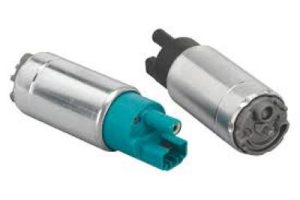In normal operation, hum is not necessarily something to be concerned about since most fuel pumps make some form of a hum as they pressurize the fuel lines. Fuel pumps usually operate with 30 to 80 psi of pressure, based on the engine and fuel system in the car, which means there is a constantly needed motor with the proper flow rate. As the electric motor that is installed inside the pump runs to pour fuel from the tank to the machine, it produces a humming sound, especially have the issue with-to- spring and also the pump demands in order to space through the Ecology Process Vehicle unit.
But if it emits an abnormally high humming, it's not a good sign. For example, if the hum gets noticeably louder as time goes on, this could be the sign of a clogged fuel filter that is making the pump work harder to keep the proper fuel pressure. As contaminants accumulate and clog the filter, the pump must work harder to supply the pressure and flow needed, which can result in a louder, more pronounced noise. Most mechanics also suggest replacing the fuel filter every 30,000 miles — a clogged filter will wear out the pump faster and increase the cost of fuel delivery.
Another thing that might make a lot of humming is because of the fuel level is low from the tank. Pump gets cooled by fuel so, when a vehicle is run on consistently low fuel level, the pump heats up and hence, the hum. Running low on fuel also exposes the pump to air, causing it to lose stability in regard to pressure, which can intensify the noise. Many automakers recommend keeping the fuel tank above a quarter tank for maximal pump service life.

One common symptom involved in installing a performance-related component is a hum from the Fuel Pump itself; while it may be alarming to some drivers, some notice this hum as soon as the new pump is installed. This is part of the reason high performance pumps, made for use with modified engines start to hum a little louder when they are engaged as they were designed from from day one to support the needs caused by higher flow rate requirements and higher power demands of the engine[3]. For turbo or high-horsepower vehicles with varying fuel demands, the louder hum of high-performance fuel pumps is normal, notes Performance Car Magazine. This noise is not a failure; rather, it usually signifies that the pump is providing the required performance for these high-demand applications.
Basically, you should notice a light hum from the fuel pump, but louder noises generally mean trouble, such as a clogged filter, low fuel levels, or high demand for fuel. By keeping an eye on these factors, one can ensure better Fuel Pump performance and longevity by placing less stress on the system.